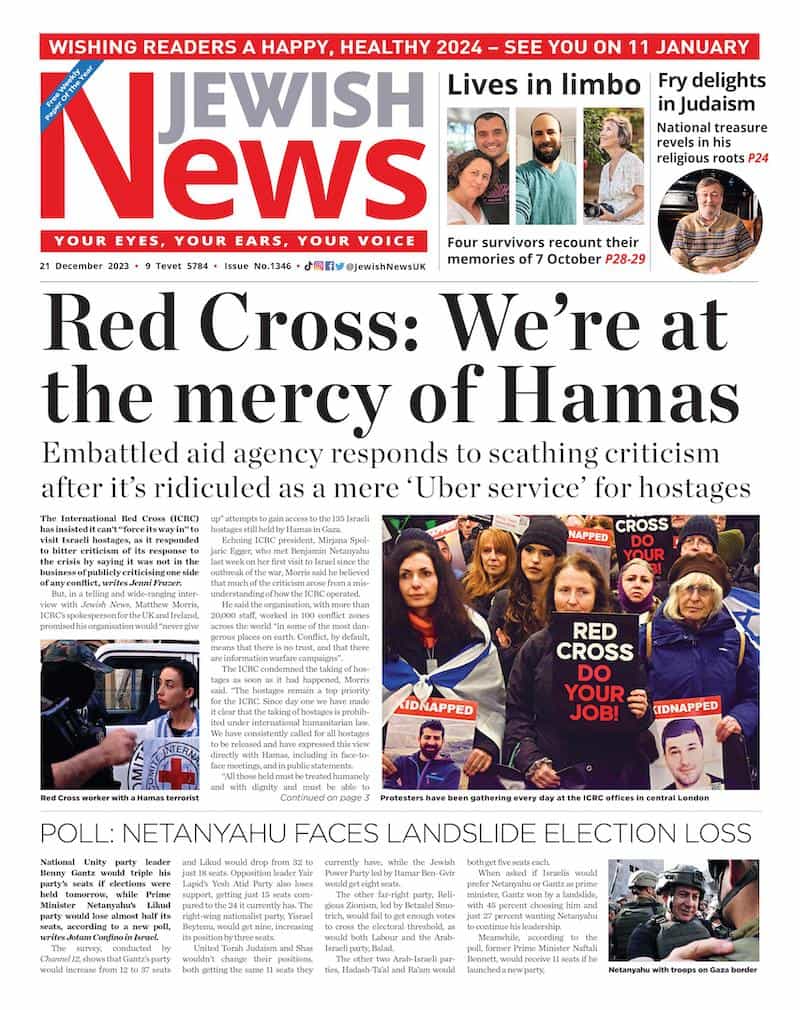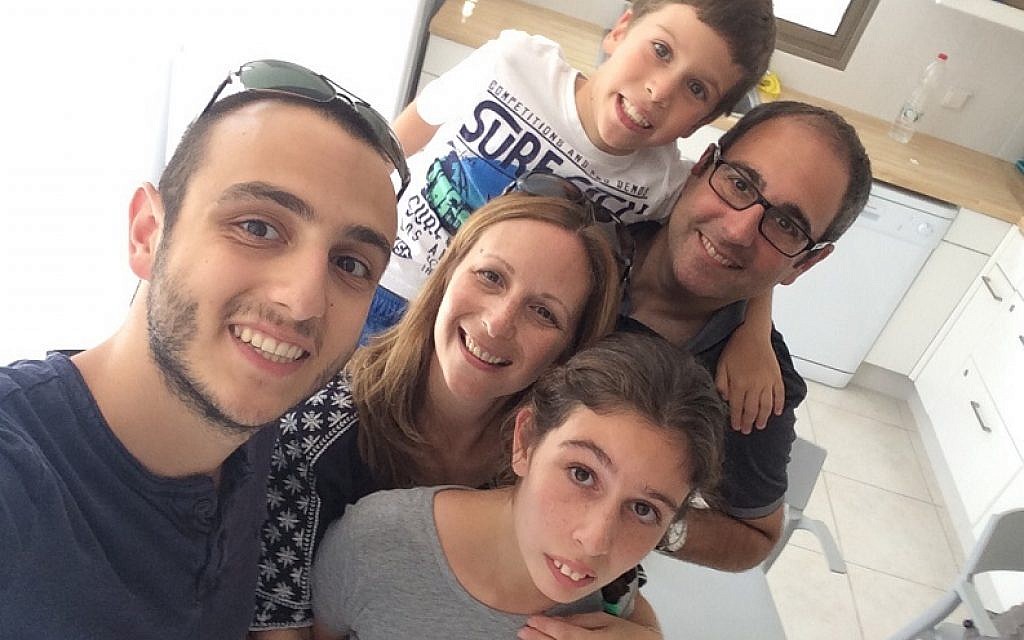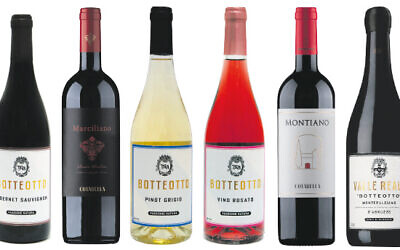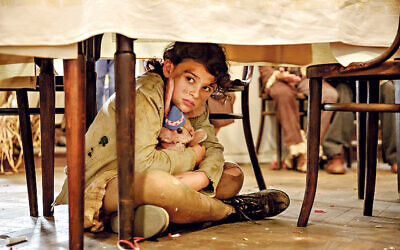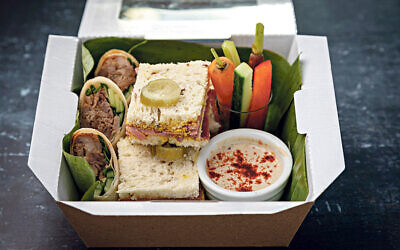‘We won’t hide our child’: Disability campaign launches to promote inclusion
February marks Jewish Disability Awareness, Acceptance and Inclusion Month, an initiative launched in the UK for the first time by British Friends of Aleh
Doron Almog always believed he was prepared for life’s challenges. Rising to the rank of major general in the Israel Defence Forces, he fought in the Yom Kippur and Lebanon wars, became the first soldier to land during Operation Entebbe and was involved in the hunt for the Munich Olympic terrorists.
But he admits feeling near defeat when his son, Eran, was born with a rare birth defect that left him severely cognitively impaired.
“It was a huge shock,” says Almog.
Get The Jewish News Daily Edition by email and never miss our top stories Free Sign Up
“When he was eight months, a psychologist told me and my wife, DiDi, that he had a combination of autism and developmental disability.
“He would never speak and mentally he would stay as a child of a few months old for the rest of his life.”
It was a critical turning point for Almog. He decided to leave the military and devote himself to helping children like his son, starting with becoming involved with Aleh, a non-profit organisation dedicated to improving the lives of disabled people by promoting independent living and inclusion.
Thirty years on, Aleh is one of the largest providers of residential care for people with disabilities in Israel, looking after more than 750 children and young adults across the country.
Now in an effort to break down prejudices surrounding disability, British Friends of Aleh has launched Jewish Disability Awareness, Acceptance and Inclusion Month (JDAIM) for the first time in the UK.
The campaign encourages communal organisations to spread greater awareness about disability and become more inclusive.
For Almog, helping to change people’s perceptions of disability will mean children like his son will no longer need to “live behind a barrier of stigma and shame”.
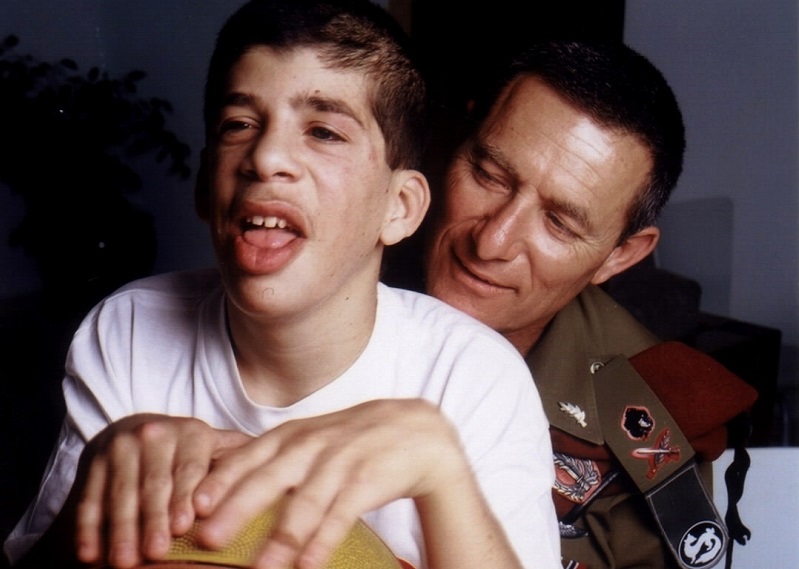
That was something Almog witnessed for himself when he started researching long-term residential care for Eran.
“We saw how children like him are kept in institutions – and what we found were horrible places.
“The children were afraid of other people, and the staff were ashamed to admit they worked there. The children had just been abandoned and neglected.”
This culture of shame was one Almog found throughout Israel. Even former Prime Minister Golda Meir, he discovered, hid the fact she had a granddaughter with Down’s syndrome, while government minister Yigal Allon sent his autistic daughter, away to Scotland.
Despite never saying a word, Eran “became the conscience inside me,” says Almog.
Desiring an alternative to institutional care, Almog helped found Aleh Negev, a residential village providing care for more than 140 young people with complex disabilities, as well as outpatient services and therapy for 12,000 patients in surrounding areas.
The on-site facilities include a hydrotherapy pool, safari petting zoo and therapeutic horse riding track.
Sadly, Eran lived there for only a year before passing away in 2007, aged 23, and the facility’s name was changed to Nahalat Eran in his memory.
“Aleh Negev gives hope to many people, a reason to continue managing their lives,” reflects Almog.
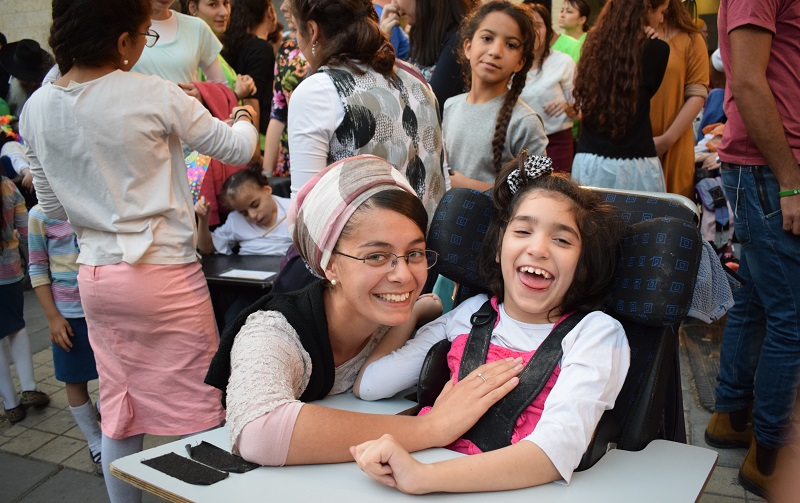
This sentiment resonates with father-of-three Alex Daulby. He moved from Manchester to Ra’anana, Israel, with his family in 2006, to find long-term care within a Jewish environment for his daughter, Mia, 21, who has severe developmental delay.
Almost seven years ago, Mia, who has no speech or language skills, was offered a place at Aleh’s residential facility in Gedera, central Israel.
“I can say, hand on heart, from the day she moved into the facility, Mia has developed both cognitively and independently,” reflects Daulby.
“It was very difficult to think about Mia living away from home, but we came to the conclusion that this was important for her on many levels.
“Today, she can feed herself independently and can go to the tap and pour herself water.
“She can live in a normal house with all the potential dangers a normal child would face.
“To know she is developing educationally, physically and independently is a blessing.”
And for Daulby, it’s not just his daughter who has benefited from living at Aleh’s facility in Gedera.
“Our children have learned not to be scared of disability and to have greater empathy for human life,” he adds.
“We don’t hide Mia away and always encourage our friends to come with us when we visit.”
In the UK, as the father of a seven-year-old disabled daughter, Richard Marcus is keenly aware of how families like his own could be better supported.
Born three months premature alongside her twin brother, his daughter Zahari contracted meningitis just hours after birth.
While she recovered, Zahari was left with cerebral palsy and today uses a wheelchair.
Marcus, who works for the United Synagogue, admits that “being a parent of a child with disabilities can feel overwhelming both emotionally and practically” and cites planning day trips, taking time off for medical appointments, access to disabled changing facilities and feeling isolated among the issues that impact his family life on a daily basis.
“Life presents challenges for us all,” he says. “To any families living with disabilities, do seek out the many support networks the community offers, and for friends of families with disabilities, be proactive.
“Life can be so intense they have little time for themselves and catching up with friends can be difficult, so please take the time to connect with them.”
For more information about organising an ALEH JDAIM event in your community, email liron@aleh.org.uk. Details: aleh.org and aleh.org.uk
How you can mark JDAIM in your community:
• Host an ALEH Inclusion Shabbat or Havdalah service
•Invite people with disabilities to help prepare Kiddush and meal functions
•Ensure that people who use wheelchairs, walkers and canes can access your bimah
•Acquire at least one large-print Siddur and one Braille Siddur
•Invite a person with a disability to speak on any topic EXCEPT that person’s disability
•Extend personal invitations to people who may be on the margins of the community
•Host an ALEH Inclusion tea party, bake sale or car boot sale
•Promote Inclusion: Use #JDAIM and #JDAIMUK19 on Twitter and Facebook
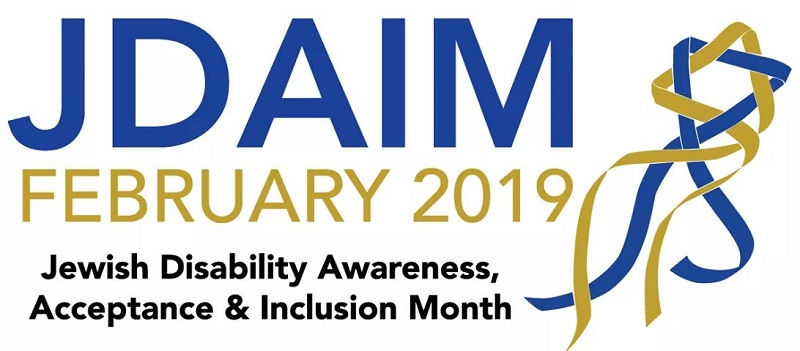

Thank you for helping to make Jewish News the leading source of news and opinion for the UK Jewish community. Today we're asking for your invaluable help to continue putting our community first in everything we do.
For as little as £5 a month you can help sustain the vital work we do in celebrating and standing up for Jewish life in Britain.
Jewish News holds our community together and keeps us connected. Like a synagogue, it’s where people turn to feel part of something bigger. It also proudly shows the rest of Britain the vibrancy and rich culture of modern Jewish life.
You can make a quick and easy one-off or monthly contribution of £5, £10, £20 or any other sum you’re comfortable with.
100% of your donation will help us continue celebrating our community, in all its dynamic diversity...
Engaging
Being a community platform means so much more than producing a newspaper and website. One of our proudest roles is media partnering with our invaluable charities to amplify the outstanding work they do to help us all.
Celebrating
There’s no shortage of oys in the world but Jewish News takes every opportunity to celebrate the joys too, through projects like Night of Heroes, 40 Under 40 and other compelling countdowns that make the community kvell with pride.
Pioneering
In the first collaboration between media outlets from different faiths, Jewish News worked with British Muslim TV and Church Times to produce a list of young activists leading the way on interfaith understanding.
Campaigning
Royal Mail issued a stamp honouring Holocaust hero Sir Nicholas Winton after a Jewish News campaign attracted more than 100,000 backers. Jewish Newsalso produces special editions of the paper highlighting pressing issues including mental health and Holocaust remembrance.
Easy access
In an age when news is readily accessible, Jewish News provides high-quality content free online and offline, removing any financial barriers to connecting people.
Voice of our community to wider society
The Jewish News team regularly appears on TV, radio and on the pages of the national press to comment on stories about the Jewish community. Easy access to the paper on the streets of London also means Jewish News provides an invaluable window into the community for the country at large.
We hope you agree all this is worth preserving.
- charity
- disability
- United Synagogue
- ALEH
- British Friends of Aleh
- Jewish Disability Awareness
- Acceptance and Inclusion Month
- JDAIM
- Doron Almog
- israel defense forces
- IDF
- Yom Kippur
- Lebanon
- Operation Entebbe
- Munich Olympics
- Munich
- Munich Terrorists
- Didi Almog
- golda meir
- Yigal Allon
- Gedera
- Alex Daulby
- Aleh Negev
- Nahalat Eran
- Raanana
- Richard Marcus
- Features
- Israel News
- Health and Beauty
-
By Laurent Vaughan - Senior Associate (Bishop & Sewell Solicitors)
-
By Laurent Vaughan - Senior Associate (Bishop & Sewell Solicitors)
-
By Laurent Vaughan - Senior Associate (Bishop & Sewell Solicitors)
-
By Laurent Vaughan - Senior Associate (Bishop & Sewell Solicitors)
-
By Brigit Grant
-
By Brigit Grant
-
By Brigit Grant

